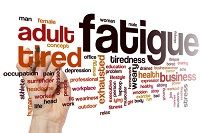Article
Central Sleep Apnea a Problem for Multiple Sclerosis Patients
Author(s):
People with multiple sclerosis tend to have sleep apnea, but not the usual kind, a study found.

High rates of central sleep apnea, rather than obstructive sleep apnea, were present in a population of multiple sclerosis (MS) patients, according to the results of a new study.
Researchers from Sydney, Australia included 21 multiple sclerosis patients in a study in order to investigate sleep disordered breathing and the symptoms of sleepiness among multiple sclerosis patients. The patients, of whom 16 were female, were aged between 18 and 75 years with confirmed multiple sclerosis and an Expanded Disability Status Scale score — a measure of sustained neurological disability due to multiple sclerosis – between 2 and 6. For example, the investigators elaborated in their paper, a score of 6 is equivalent to needing assistance required to walk 100 meters. The patients were recruited from an academic teaching hospital multiple sclerosis clinic. The participants were instructed to perform a home sleep study, called the ResMed ApneaLink Plus.
The researchers learned that higher rates of central sleep apnea than expected were detected. It is caused by one or more problems within the brainstem respiratory control centers, which control breathing. The highest rate of central sleep apnea in multiple sclerosis patients in a study was 8%, but other studies on the topic have discovered rates of between 1% and 4%.
Additionally, the investigators also determined that perceived poor sleep quality and sleepiness were common. In prior studies of multiple sclerosis patients, poor sleep quality typically ranged from 48% to 77%, the researchers said. In this study, the findings reinforced previous reports, the researchers added, saying that even in the absence of obstructive sleep apnea, sleepiness and poor sleep quality are common in multiple sclerosis. The researchers advised that management of these issues need to be tailored for each individual.
The team also found that home sleep testing was well tolerated in this clinical multiple sclerosis cohort, they wrote. In two previous studies, the participation consent rate was 31% and 30%, respectively; however, in this study, that rate reached 77%. The researchers determined that using level-3 devices is feasible in the multiple sclerosis population.
While prior studies of multiple sclerosis have focused on obstructive sleep apnea, the study authors wrote, though rates of sleep apnea varied considerably.
“In our research, we were surprised by the high rates of central sleep apnea (less than 1% of the general population) in people with multiple sclerosis,” first author, Michael Lin. told MD Magazine in an email. “This potentially has implications for the management of patients with multiple sclerosis, as like obstructive sleep apnea, central sleep apnea might be linked with fatigue in people with multiple sclerosis. Our findings also help inform future studies aimed at characterizing and understanding the causes and manifestations of sleep disordered breathing and its impact in people with multiple sclerosis.”
In the future, these findings could provide a pathway for the support needed surrounding the causes and manifestations of sleep disordered breathing and sleep disruption and its impact on multiple sclerosis populations.
The study, titled “Central sleep apnea in multiple sclerosis,” was published in the journal Sleep and Breathing.
Related Coverage:
Multiple Sclerosis Associated with Disruption of Microbiome
Multiple Sclerosis: Neural Stem Cells Hold Key to New Therapies?




